Beneath the sleek exterior of every car lies a complex heart—the engine—that powers your journeys and drives your adventures. Keeping this vital component in top condition is more than just routine maintenance; it’s a commitment to longevity, performance, and safety. Whether you’re a seasoned driver or a casual commuter, understanding the essentials of engine care can transform your driving experience and protect your investment. In this article, we’ll explore practical tips and expert advice to help you maintain your car engine’s health, ensuring it runs smoothly mile after mile.
Table of Contents
- Essential Routine Checks to Prevent Engine Wear
- Choosing the Right Engine Oil for Optimal Performance
- Cooling System Maintenance to Avoid Overheating
- Signs of Trouble to Watch for Early Engine Issues
- The Role of Air Filters in Engine Efficiency
- When to Consult a Professional Mechanic for Engine Care
- Q&A
- The Way Forward
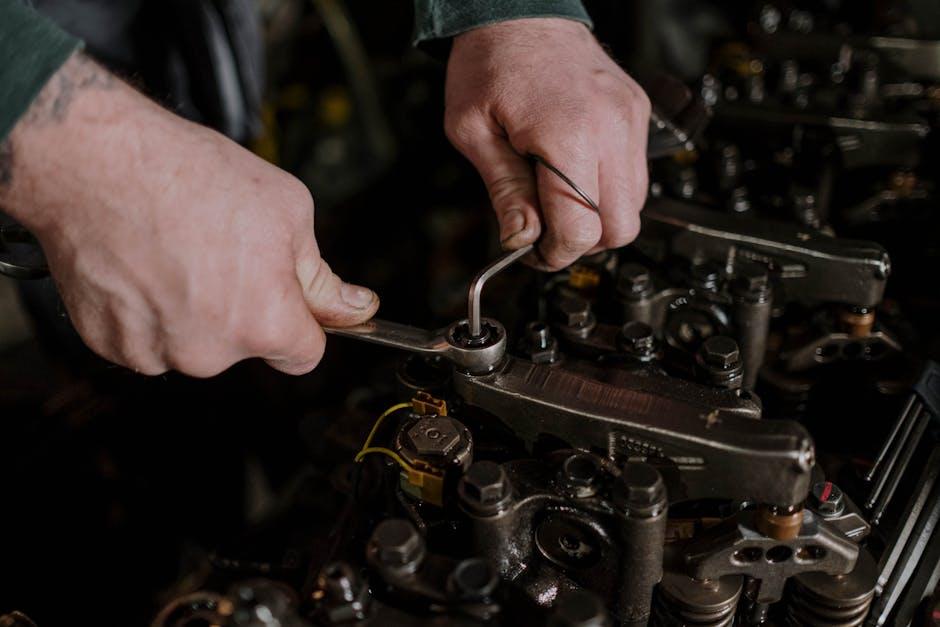
Essential Routine Checks to Prevent Engine Wear
Maintaining your engine’s health starts with regular inspections that catch wear before it escalates. One of the most overlooked steps is consistently checking your oil levels. Low or dirty oil can accelerate friction between moving parts, leading to premature engine damage. Alongside this, ensure your coolant levels are adequate to prevent overheating, which is a major cause of engine deterioration. Never underestimate the importance of a clean air filter; a clogged one can reduce fuel efficiency and strain your engine unnecessarily.
In addition to fluids, mechanical components require periodic attention. Keep an eye on your spark plugs and belts—worn spark plugs can cause misfires and inefficient combustion, while cracked or loose belts can disrupt engine timing and accessory functions. Here’s a quick guide to essential checks that protect your engine’s longevity:
- Oil Level & Quality: Check monthly and change every 3,000 to 7,500 miles depending on your vehicle’s specifications.
- Coolant Level: Inspect before long trips and top up as needed to maintain optimal engine temperature.
- Air Filter: Replace annually or more frequently if driving in dusty conditions.
- Spark Plugs: Inspect at least every 30,000 miles; replace if fouled or worn.
- Drive Belts: Check for cracks or frays during every oil change.
| Component | Inspection Frequency | Signs of Wear |
|---|---|---|
| Oil | Monthly | Dark color, low level, unusual smell |
| Coolant | Every 6 months | Low level, discoloration, leakage |
| Air Filter | Every 12 months | Visible dirt buildup, reduced airflow |
| Spark Plugs | Every 30,000 miles | Misfires, poor acceleration |
| Drive Belts | Every oil change | Cracks, squealing noise |
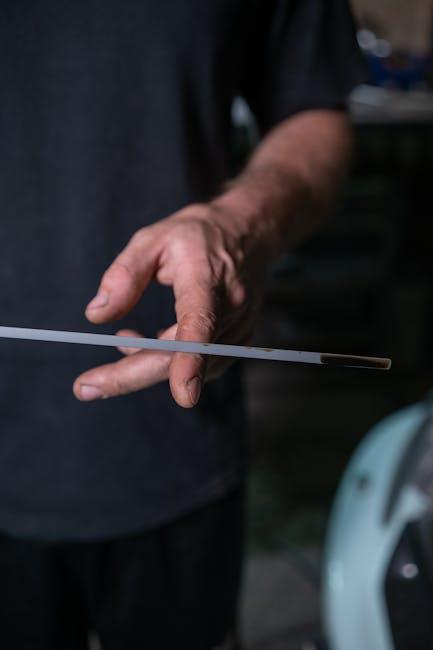
Choosing the Right Engine Oil for Optimal Performance
Using the ideal engine oil is crucial for maintaining your car’s performance and extending its lifespan. Different engines require specific types of oil based on viscosity, additives, and base oil composition. Modern vehicles often benefit from synthetic oils, which offer superior protection in extreme temperatures and reduce engine wear. However, conventional oils may still be suitable for older car models or those with lighter workloads. To make the best choice, refer to your manufacturer’s specifications and consider your driving habits—whether you frequently endure stop-and-go traffic, long highway drives, or extreme climates.
Factors to consider when selecting engine oil:
- Viscosity grade: Ensures proper flow and protection under different temperatures.
- Oil type: Synthetic, semi-synthetic, or conventional based on performance needs.
- Additive package: Detergents, anti-wear agents, and friction modifiers improve engine health.
- Fuel economy claims: Some oils are formulated to enhance efficiency.
| Oil Type | Best For | Price Range | Key Benefits |
|---|---|---|---|
| Synthetic | High-performance, cold climates | $$$ | Superior protection, longer intervals |
| Semi-Synthetic | Everyday driving, moderate conditions | $$ | Balance of performance and cost |
| Conventional | Older engines, budget-conscious | $ | Basic protection, widely available |
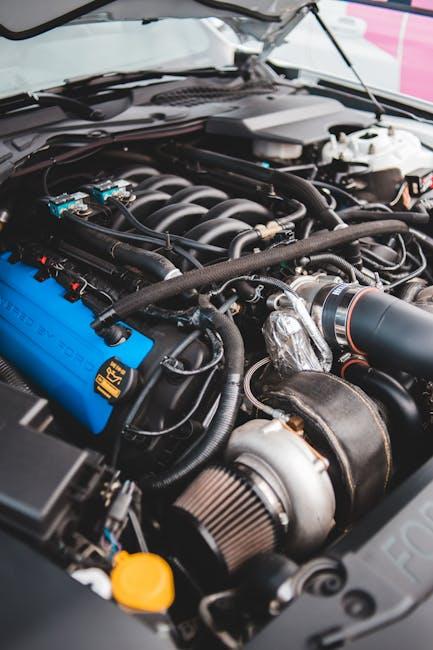
Cooling System Maintenance to Avoid Overheating
Proper care of your car’s cooling system is essential to prevent engine overheating, which can lead to costly repairs. Start by regularly checking the coolant level and topping it off with the manufacturer-recommended antifreeze mixture. It’s also important to inspect hoses and clamps for any signs of wear or leaks that might compromise the cooling efficiency. A clean radiator free from dirt and debris allows for optimal airflow, so periodic flushing and cleaning are key to maintaining its performance.
Keep an eye on the thermostat and water pump, as these components regulate coolant flow and heat exchange. Replacing your coolant as per your vehicle’s maintenance schedule ensures the system stays free from corrosion and buildup. To help you stay on track, here’s a quick reference table for cooling system care intervals:
| Component | Maintenance Interval | Action |
|---|---|---|
| Coolant | Every 2 years / 30,000 miles | Flush and replace |
| Radiator | Annually | Inspect and clean |
| Hoses & Clamps | Every 1 year | Inspect for cracks/leaks |
| Thermostat | Every 50,000 miles | Test and replace if faulty |

Signs of Trouble to Watch for Early Engine Issues
Early engine problems often reveal themselves through subtle yet noticeable changes. Pay close attention to unusual noises like knocking, ticking, or grinding sounds that were not present before. Another common indicator is a sudden drop in fuel efficiency, which might hint at underlying issues affecting combustion or fuel delivery. Additionally, if your car hesitates during acceleration or the engine misfires, these are signs worth investigating promptly to avoid costly repairs.
Keeping an eye on your dashboard warning lights can also give you a crucial heads-up. The check engine light can illuminate for various reasons, ranging from minor sensor faults to significant engine malfunctions. Below is a quick guide that helps distinguish some common early symptoms and their possible causes:
| Symptom | Possible Cause | Recommended Action |
|---|---|---|
| Engine knocking | Poor fuel quality or timing issues | Check fuel type, inspect timing belt |
| Loss of power | Clogged fuel filter or spark plugs | Replace filters/plugs |
| Warning lights on dashboard | Sensor malfunctions or emissions issues | Diagnostic scan recommended |
| Excessive exhaust smoke | Oil burning or fuel mixture problems | Consult mechanic for inspection |
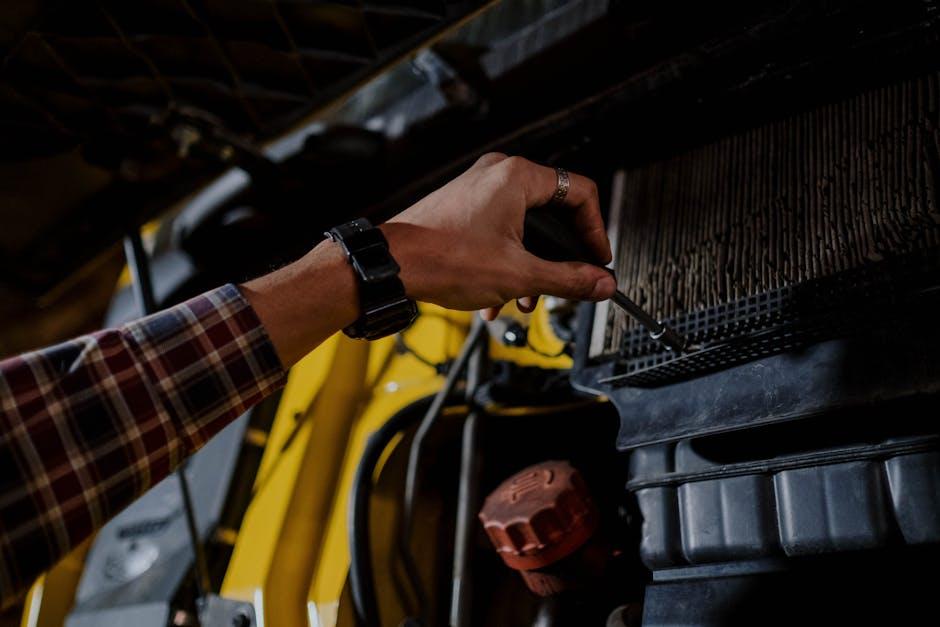
The Role of Air Filters in Engine Efficiency
Maintaining clean and efficient air filters is essential for your engine’s optimal performance. These filters act as the first line of defense against dust, dirt, and airborne particles, preventing harmful debris from entering the combustion chamber. When air filters become clogged, airflow diminishes, forcing the engine to work harder and reducing fuel efficiency. By ensuring that air filters are replaced or cleaned regularly, you can help your engine breathe freely, promoting smoother acceleration and better overall power.
Beyond just protection, air filters play a crucial role in maintaining the precise air-fuel mixture necessary for efficient combustion. An obstructed filter may cause incomplete burning of fuel, leading to increased emissions and engine deposits. Consider incorporating these maintenance tips into your routine:
- Check your air filter every 12,000 miles or as recommended by your vehicle manufacturer
- Inspect for visible dirt and damage during each oil change
- Opt for high-quality filters designed for your specific vehicle model
| Air Filter Type | Average Lifespan | Benefits |
|---|---|---|
| Paper | 12,000 – 15,000 miles | Cost-effective, easy replacement |
| Cotton Gauze | 20,000 – 25,000 miles | Reusable, better airflow |
| Foam | 15,000 – 20,000 miles | Good for off-road conditions |
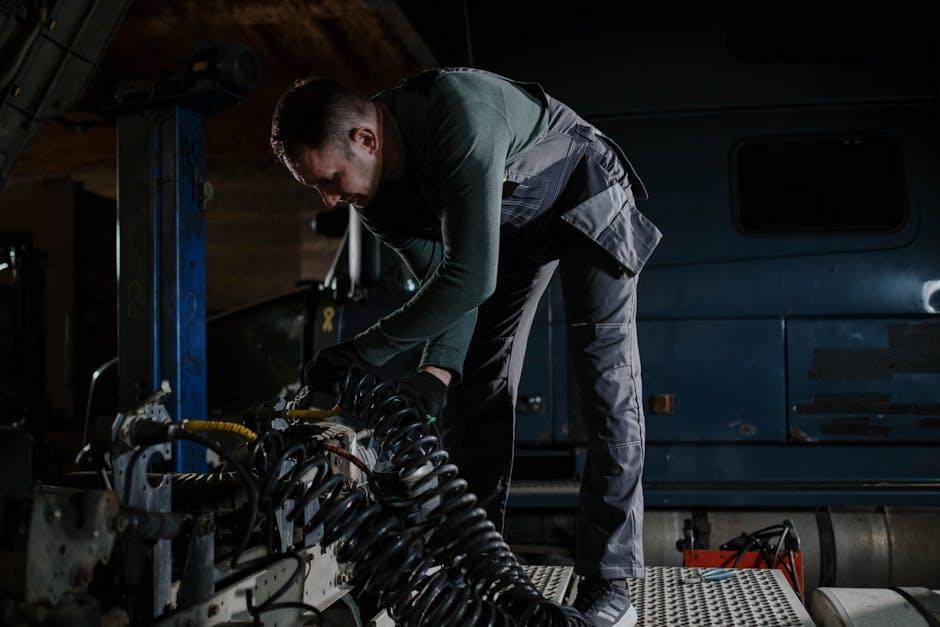
When to Consult a Professional Mechanic for Engine Care
While regular maintenance can keep your engine purring, certain signs scream for expert attention before minor issues spiral into costly repairs. If you notice persistent warning lights on your dashboard, unusual noises like knocking or grinding, or a sudden drop in fuel efficiency, it’s a strong indicator that your vehicle could benefit from the skilled eyes of a professional mechanic. These experts not only have the diagnostic tools to pinpoint hidden problems but also the experience to apply long-lasting solutions that DIY fixes might miss.
Some engine concerns require the precision that only trained technicians can provide. Consider scheduling a consultation if you experience:
- Frequent overheating despite coolant top-ups
- Visible smoke (blue, black, or white) from the exhaust
- Vibrations or shaking during acceleration or idling
- Difficulty starting your vehicle on cold mornings
Ignoring these signals can lead to more severe engine wear or even sudden breakdowns, putting both your safety and budget at risk. Early professional intervention is the key to keeping your engine running smoothly for miles to come.
Q&A
Q: Why is it important to keep my car engine in top condition?
A: Your car’s engine is its heart and soul—without it running smoothly, the whole vehicle suffers. Maintaining your engine ensures optimal performance, prevents costly repairs, improves fuel efficiency, and prolongs your car’s lifespan.
Q: What are the most essential routine checks for engine maintenance?
A: Regularly check your engine oil level and quality, inspect the coolant, monitor the air filter, and keep an eye on belts and hoses for any signs of wear. These simple steps help catch issues before they escalate.
Q: How often should I change my engine oil?
A: Oil change intervals vary by vehicle and oil type, but a general rule is every 5,000 to 7,500 miles. Always follow your car manufacturer’s recommendations—clean oil keeps the engine lubricated and cool, preventing friction and damage.
Q: Can I use any type of fuel to keep my engine healthy?
A: Using the recommended fuel grade matters. Higher-octane fuels are often necessary for performance engines, while regular unleaded might suffice for others. Sticking to the correct fuel prevents knocking and maintains engine efficiency.
Q: How does keeping my engine clean help?
A: Dirt and grime can clog vital engine components and reduce performance. Cleaning the engine bay and using fuel system cleaners occasionally helps remove deposits that affect combustion and airflow.
Q: What role does the cooling system play in engine health?
A: The cooling system prevents your engine from overheating. Regularly top off coolant levels and flush the system as recommended to avoid heat-related damage like warped components or gasket failures.
Q: Are there warning signs that indicate engine trouble?
A: Yes—unusual noises, decreased performance, excessive smoke, warning lights, or rough idling can all signal engine issues. Address these symptoms promptly to prevent further damage.
Q: How can driving habits impact my engine’s longevity?
A: Smooth acceleration, avoiding excessive idling, and warming up your engine before heavy driving can reduce stress on engine parts. Conversely, aggressive driving and frequent short trips may increase wear.
Q: Should I perform engine maintenance myself or seek a professional?
A: Basic checks like oil level and air filter replacement are DIY-friendly, but complex tasks such as timing belt replacement or diagnostics are best handled by professionals to ensure precision and safety.
Q: What’s the biggest tip for keeping an engine in top shape?
A: Consistency is key. Regular maintenance, attentive driving, and prompt repairs create a harmonious engine environment where performance and reliability thrive. Think of it as nurturing a high-performance athlete—steady care wins the race.
The Way Forward
Maintaining your car engine is much like nurturing a living, breathing entity—attentive care, timely check-ups, and a little bit of patience go a long way. By embracing these simple yet effective practices, you ensure that your engine hums smoothly, miles turn effortlessly beneath your wheels, and surprises remain far off the road. Remember, every drop of oil and every careful inspection isn’t just a task completed; it’s an investment in the life and longevity of your vehicle. Keep that engine in top condition, and it will keep you moving forward, no matter where the journey takes you.


487 Comments
tjbzey
haupot
xmq2rl
nkk8ms
wbkugi
ve1vbw
b7aial
y3xo9i
kom54o
https://t.me/s/Online_1_xbet/932
https://t.me/s/Online_1_xbet/2494
https://t.me/s/Official_1xbet_1xbet
https://t.me/rating_online/9
https://t.me/s/rating_online/6
https://t.me/rating_online/8
https://t.me/rating_online/7
https://t.me/rating_online/4
https://t.me/rating_online/5
https://t.me/s/rating_online/13
https://t.me/rating_online/1
https://t.me/Online_1_xbet/2864
https://t.me/Online_1_xbet/2124
https://t.me/Online_1_xbet/2108
https://t.me/Online_1_xbet/2017
db2wym
https://t.me/Online_1_xbet/2070
https://t.me/Online_1_xbet/2055
https://t.me/Online_1_xbet/2556
https://t.me/Online_1_xbet/2688
https://t.me/Online_1_xbet/2531
https://t.me/Online_1_xbet/2950
https://t.me/Online_1_xbet/2370
https://t.me/Official_1xbet_1xbet/s/655
https://t.me/Official_1xbet_1xbet/s/1018
https://t.me/Official_1xbet_1xbet/s/1481
https://t.me/Official_1xbet_1xbet/s/148
https://t.me/Official_1xbet_1xbet/s/1338
https://t.me/Official_1xbet_1xbet/s/988
https://t.me/Official_1xbet_1xbet/s/477
https://t.me/Official_1xbet_1xbet/s/242
https://t.me/Official_1xbet_1xbet/s/923
https://t.me/Official_1xbet_1xbet/s/1203
https://t.me/Official_1xbet_1xbet/s/1414
https://t.me/Official_1xbet_1xbet/s/1477
https://t.me/Official_1xbet_1xbet/s/1199
https://t.me/Official_1xbet_1xbet/s/1207
https://t.me/Official_1xbet_1xbet/s/1444
https://t.me/Official_1xbet_1xbet/s/867
https://t.me/Official_1xbet_1xbet/s/717
https://t.me/Official_1xbet_1xbet/s/1315
https://t.me/Official_1xbet_1xbet/s/77
https://t.me/Official_1xbet_1xbet/s/816
https://t.me/Official_1xbet_1xbet/s/571
https://t.me/Official_1xbet_1xbet/s/941
https://t.me/Official_1xbet_1xbet/s/1148
https://t.me/Official_1xbet_1xbet/s/341
https://t.me/Official_1xbet_1xbet/s/382
https://t.me/Official_1xbet_1xbet/s/1504
https://t.me/Official_1xbet_1xbet/s/969
https://t.me/Official_1xbet_1xbet/s/919
https://t.me/Official_1xbet_1xbet/s/608
https://t.me/Official_1xbet_1xbet/s/817
https://t.me/Official_1xbet_1xbet/s/880
https://t.me/Official_1xbet_1xbet/s/266
https://t.me/Official_1xbet_1xbet/s/1216
https://t.me/Official_1xbet_1xbet/s/512
https://t.me/Official_1xbet_1xbet/s/585
https://t.me/Official_1xbet_1xbet/s/1478
https://t.me/Official_1xbet_1xbet/s/331
https://t.me/Official_1xbet_1xbet/s/1009
https://t.me/Official_1xbet_1xbet/s/269
https://t.me/Official_1xbet_1xbet/s/711
https://t.me/Official_1xbet_1xbet/s/537
https://t.me/Official_1xbet_1xbet/s/1019
https://t.me/Official_1xbet_1xbet/s/1014
https://t.me/Official_1xbet_1xbet/s/508
https://t.me/Official_1xbet_1xbet/s/1080
https://t.me/Official_1xbet_1xbet/s/580
https://t.me/Official_1xbet_1xbet/1783
https://t.me/s/Official_1xbet_1xbet/1736
https://t.me/Official_1xbet_1xbet/1752
https://t.me/Official_1xbet_1xbet/1651
https://t.me/s/Official_1xbet_1xbet/1614
https://t.me/Official_1xbet_1xbet/1750
https://t.me/s/Official_1xbet_1xbet/1844
https://t.me/s/Official_1xbet_1xbet/1849
https://t.me/Official_1xbet_1xbet/1818
https://t.me/Official_1xbet_1xbet/1712
https://t.me/s/Official_1xbet_1xbet/1616
https://t.me/s/Official_1xbet_1xbet/1829
https://t.me/s/Official_1xbet_1xbet/1774
https://t.me/Official_1xbet_1xbet/1745
https://t.me/s/Official_1xbet_1xbet/1719
https://t.me/s/Official_1xbet_1xbet/1731
https://t.me/s/Official_1xbet_1xbet/1599
https://t.me/s/Official_1xbet_1xbet/1791
https://t.me/Official_1xbet_1xbet/1777
https://t.me/Official_1xbet_1xbet/1724
https://t.me/s/Official_1xbet_1xbet/1741
https://t.me/Official_1xbet_1xbet/1789
https://t.me/s/Official_1xbet_1xbet/1636
https://t.me/s/Official_1xbet_1xbet/1699
https://t.me/s/Official_1xbet_1xbet/1704
https://t.me/s/Official_1xbet_1xbet/1751
https://t.me/Official_1xbet_1xbet/1856
https://t.me/s/Official_1xbet_1xbet/1780
https://t.me/Official_1xbet_1xbet/1658
https://t.me/Official_1xbet_1xbet/1744
https://t.me/Official_1xbet_1xbet/1600
https://t.me/Official_1xbet_1xbet/1761
https://t.me/s/Official_1xbet_1xbet/1694
https://t.me/Official_1xbet_1xbet/1720
https://t.me/s/Official_1xbet_1xbet/1675
https://t.me/s/Official_1xbet_1xbet/1798
https://t.me/Official_1xbet_1xbet/1812
https://t.me/s/Official_1xbet_1xbet/1854
https://t.me/Official_1xbet_1xbet/1723
https://t.me/s/Official_1xbet_1xbet/1793
https://t.me/s/Official_1xbet_1xbet/1817
https://t.me/s/Official_1xbet_1xbet/1821
https://t.me/s/Official_1xbet_1xbet/1766
https://t.me/s/Official_1xbet_1xbet/1833
https://t.me/s/Official_1xbet_1xbet/1728
https://t.me/Official_1xbet_1xbet/1672
https://t.me/Official_1xbet_1xbet/1619
https://t.me/s/Official_1xbet_1xbet/1679
https://t.me/s/Official_1xbet_1xbet/1670
https://t.me/Official_1xbet_1xbet/1675
https://t.me/Official_1xbet_1xbet/1758
https://t.me/Official_1xbet_1xbet/1618
https://t.me/Official_1xbet_1xbet/1644
https://t.me/s/Official_1xbet_1xbet/1846
https://t.me/s/Official_1xbet_1xbet/1848
https://t.me/Official_1xbet_1xbet/1743
https://t.me/Official_1xbet_1xbet/1791
https://t.me/s/Official_1xbet_1xbet/1607
https://t.me/Official_1xbet_1xbet/1615
https://t.me/Official_1xbet_1xbet/1843
https://t.me/Official_1xbet_1xbet/1630
https://t.me/Official_1xbet_1xbet/1638
https://t.me/Official_1xbet_1xbet/1828
https://t.me/s/Official_1xbet_1xbet/1789
https://t.me/s/Official_1xbet_1xbet/1687
https://t.me/Official_1xbet_1xbet/1813
https://t.me/s/topslotov
e18fzw
[https://t.me/s/official_1win_aviator](https://t.me/s/official_1win_aviator)
https://t.me/s/reiting_top10_casino/10
https://t.me/s/reiting_top10_casino/7
https://t.me/reiting_top10_casino
https://t.me/reiting_top10_casino/3
https://t.me/reiting_top10_casino/6
https://t.me/reiting_top10_casino/8
https://t.me/s/reiting_top10_casino
https://t.me/reiting_top10_casino/2
https://t.me/reiting_top10_casino/7
https://t.me/s/reiting_top10_casino/3
https://t.me/s/reiting_top10_casino/6
https://t.me/s/reiting_top10_casino/8
https://t.me/s/reiting_top10_casino/9
https://t.me/reiting_top10_casino/9
https://t.me/reiting_top10_casino/4
https://t.me/reiting_top10_casino/10
https://t.me/s/reiting_top10_casino/2
https://t.me/s/reiting_top10_casino/4
https://t.me/s/reiting_top10_casino/5
https://t.me/reiting_top10_casino/5
https://t.me/s/Gaming_1xbet
https://t.me/s/PlayCasino_1xbet
https://t.me/s/PlayCasino_1xbet
https://t.me/s/PlayCasino_1win
https://t.me/s/PlayCasino_1win
https://t.me/s/ofitsialniy_1win/33/evith
https://t.me/s/iw_1xbet
https://t.me/s/ofitsialniy_1win
https://t.me/s/Official_beefcasino
k0myxh
https://t.me/bs_1xbet/34
https://t.me/bs_1xbet/35
https://t.me/bs_1xbet/32
https://t.me/s/bs_1xbet/19
https://t.me/bs_1xbet/40
https://t.me/bs_1xbet/42
https://t.me/bs_1xbet/43
https://t.me/bs_1xbet/29
https://t.me/bs_1xbet/21
https://t.me/bs_1xbet/16
https://t.me/s/bs_1xbet/7
https://t.me/bs_1xbet/16
https://t.me/bs_1xbet/24
https://t.me/bs_1xbet/13
https://t.me/s/bs_1xbet/4
https://t.me/bs_1xbet/29
https://t.me/s/bs_1xbet/18
https://t.me/bs_1xbet/16
https://t.me/s/bs_1xbet/51
https://t.me/bs_1xbet/4
https://t.me/s/bs_1xbet/44
https://t.me/bs_1xbet/34
https://t.me/s/bs_1xbet/22
https://t.me/s/bs_1xbet/11
https://t.me/bs_1xbet/2
https://t.me/bs_1xbet/41
https://t.me/bs_1xbet/36
https://t.me/s/bs_1xbet/43
https://t.me/s/bs_1xbet/28
https://t.me/s/bs_1xbet/38
https://t.me/s/bs_1xbet/9
https://t.me/bs_1xbet/13
https://t.me/bs_1xbet/4
https://t.me/s/bs_1xbet/34
https://t.me/bs_1xbet/15
https://t.me/s/bs_1xbet/46
https://t.me/bs_1xbet/44
https://t.me/bs_1xbet/31
https://t.me/s/bs_1xbet/32
https://t.me/bs_1xbet/27
https://t.me/bs_1xbet/51
https://t.me/s/bs_1xbet/32
https://t.me/jw_1xbet/773
https://t.me/jw_1xbet/674
https://t.me/s/jw_1xbet/543
https://t.me/jw_1xbet/447
https://t.me/jw_1xbet/519
https://t.me/jw_1xbet/238
https://t.me/s/bs_1Win/1065
https://t.me/bs_1Win/749
https://t.me/s/bs_1Win/884
https://t.me/bs_1Win/1104
https://t.me/s/bs_1Win/1121
https://t.me/bs_1Win/532
https://t.me/bs_1Win/367
https://t.me/bs_1Win/379
https://t.me/bs_1Win/447
https://t.me/s/bs_1Win/830
https://t.me/s/bs_1Win/598
https://t.me/s/bs_1Win/622
https://t.me/s/Official_mellstroy_casino/49
https://t.me/s/Official_mellstroy_casino/43
https://t.me/s/Beefcasino_rus/40
https://t.me/Official_mellstroy_casino/42
https://t.me/s/Official_mellstroy_casino/33
https://t.me/Official_mellstroy_casino/44
https://t.me/s/Official_mellstroy_casino/24
https://t.me/Official_mellstroy_casino/41
https://t.me/Official_mellstroy_casino/18
https://t.me/Official_mellstroy_casino/16
https://t.me/Official_mellstroy_casino/31
https://t.me/s/Official_mellstroy_casino/42
https://t.me/s/Official_mellstroy_casino/27
https://t.me/Official_mellstroy_casino/53
https://t.me/Best_promocode_rus/3030
https://t.me/Best_promocode_rus/2687
https://t.me/s/Beefcasino_rus/57
https://t.me/ud_Riobet/59
https://t.me/ud_Kometa/51
https://t.me/ud_CatCasino/44
https://t.me/s/ud_MostBet/54
https://t.me/s/ud_Kometa/48
https://t.me/s/ud_Rox/44
https://t.me/ud_Riobet/58
https://t.me/ud_Fresh/57
https://t.me/ud_Pokerdom/55
https://t.me/s/ud_Casino_X/48
https://t.me/s/ud_DragonMoney/48
https://t.me/s/ud_Pinco/56
https://t.me/ud_Rox/58
https://t.me/ud_Kometa/63
https://t.me/s/ud_MrBit/63
https://t.me/ud_1xbet/48
https://t.me/s/Beefcasino_rus/59
https://t.me/s/ud_Jet/45
https://t.me/ud_Irwin/54
https://t.me/ud_Monro/52
https://t.me/ud_Stake/60
https://t.me/s/ud_Martin/55
https://t.me/s/ud_Legzo/58
https://t.me/ud_Stake/62
https://t.me/s/ud_Vulkan/53
https://t.me/ud_Starda/57
https://t.me/ud_MrBit/47
https://t.me/ud_Riobet/28
https://t.me/s/ud_Stake/33
https://t.me/ud_Monro/29
https://t.me/s/uD_MOSTBEt
https://t.me/s/UD_VULKAN
https://t.me/s/Ud_rIoBet
https://t.me/s/UD_PlAYfoRtuNA
https://t.me/s/ud_1Go
https://t.me/s/ud_voDkA
https://t.me/s/UD_pinCo
https://t.me/s/Ud_pIn_up
https://t.me/s/official_1win_aviator/38
https://t.me/s/Ud_KEnT
https://t.me/s/uD_dRagonMOneY
https://t.me/official_1win_aviator/84
https://t.me/s/Ud_FlagMAN
https://t.me/s/uD_fRESH
https://t.me/s/UD_drIp
https://t.me/s/UD_iRWIn
https://t.me/s/ud_JoycaSino
https://t.me/s/uD_soL
https://t.me/s/UD_ROX
https://t.me/s/tf_1win
https://t.me/s/kfo_1win
https://t.me/s/tf_1win
https://t.me/s/Top_bk_ru
https://t.me/s/Ud_CatCasINo
https://t.me/s/official_1win_aviator/251
https://t.me/s/ud_IRwiN
https://t.me/s/uD_fLAgmAn
https://t.me/s/ud_rox
https://t.me/s/uD_KomEtA
https://t.me/s/UD_sOL
https://t.me/s/ud_riObet
https://t.me/s/ud_lEon
https://t.me/s/UD_BOoi
https://t.me/s/UD_vULKAn
https://t.me/s/Ud_StarDa
https://t.me/s/ke_Sol
https://t.me/s/ke_MrBit
https://t.me/s/ke_mellstroy
https://t.me/s/official_1win_aviator/240
https://t.me/s/ke_Casino_X
https://t.me/s/ke_Gama
https://t.me/s/kef_R7
https://t.me/s/ke_Jet
https://t.me/s/ke_Pin_Up
https://t.me/s/ke_JoyCasino
https://t.me/s/ke_Kometa
https://t.me/s/ke_Booi
https://t.me/s/ke_1Go
https://t.me/s/ke_Leon
https://t.me/s/ke_Drip
https://t.me/s/ke_Riobet
https://t.me/s/ke_Monro
https://t.me/s/ke_MostBet
https://t.me/s/ke_1xbet
https://t.me/s/ke_Irwin
https://t.me/s/kef_beef
https://t.me/s/ke_Pokerdom
https://t.me/s/ke_Vulkan
https://t.me/s/ke_Martin
https://t.me/s/ke_Daddy
https://t.me/s/ke_Gizbo
https://t.me/s/ke_Stake
https://t.me/s/ke_GGBet
https://t.me/s/ke_Volna
https://t.me/s/ke_Legzo
https://t.me/official_1win_aviator/147
https://t.me/s/ke_Flagman
https://t.me/s/ke_Vodka
https://t.me/official_1win_aviator/622
https://t.me/s/ke_kent
https://t.me/s/ke_PlayFortuna
https://t.me/s/ke_DragonMoney
https://t.me/s/topcasino_v_rossii
https://t.me/s/top_kazino_z
https://t.me/a_Top_onlinecasino/19
https://t.me/s/a_Top_onlinecasino/5
https://t.me/s/a_Top_onlinecasino/4
https://t.me/a_Top_onlinecasino/21
https://t.me/a_Top_onlinecasino/20
https://t.me/s/a_Top_onlinecasino/15
https://t.me/s/a_Top_onlinecasino/14
https://t.me/s/a_Top_onlinecasino/11
https://t.me/s/a_Top_onlinecasino/9
https://t.me/a_Top_onlinecasino/2
https://t.me/a_Top_onlinecasino/5
https://t.me/topcasino_rus/
https://t.me/s/official_Leon_ed
https://t.me/s/official_Flagman_edxjqqc
https://t.me/s/official_Gama_es
https://t.me/s/official_Vulkan_es
https://t.me/s/official_1xSlots_ed
https://t.me/s/official_Starda_es
https://t.me/s/official_Pokerdom_ed
https://t.me/s/official_Vodka_es
https://t.me/s/official_Sol_ed
https://t.me/s/official_Drip_es
https://t.me/s/official_Sol_es
https://t.me/s/official_Daddy_es
https://t.me/s/official_1Win_es
https://t.me/s/official_Jet_es
https://t.me/s/official_Martin_es
https://t.me/s/official_Izzi_es
https://t.me/s/official_Lex_es
https://t.me/s/official_Stake_ed
https://t.me/s/official_JoyCasino_es
https://t.me/s/official_1Go_ed
https://t.me/s/official_Drip_ed
https://t.me/s/official_Irwin_es
https://t.me/s/official_1xSlots_es
https://t.me/s/official_GGBet_ed
https://t.me/s/iGaming_live/4551
https://t.me/s/R7_egs/13
https://t.me/s/Gizbo_egs/6
https://t.me/PinUp_egs/6
https://t.me/s/?@DragonMoney_egs/8
https://t.me/s/?@DragonMoney_egs/15
https://t.me/s/CatCasino_egs/3
https://t.me/s/Irwin_egs/13
https://t.me/s/CasinoX_egs/7
https://t.me/Booi_egs/22
https://t.me/s/?@DragonMoney_egs/7
https://t.me/Gama_egs/13
https://t.me/Jet_egs/8
https://t.me/Pokerdom_egs/22
https://t.me/s/MrBit_egs/5
https://t.me/s/Kent_egs/10
https://t.me/s/MrBit_egs/19
https://t.me/Rox_egs/17
https://t.me/s/MrBit_egs/9
https://t.me/Booi_egs/21
https://t.me/s/CatCasino_egs/18
https://t.me/s/Rox_egs/14
https://t.me/s/Vodka_egs/13
https://t.me/Leon_egs/12
https://t.me/s/Leon_egs/7
https://t.me/va_1xbet/15
https://t.me/s/iGaming_live/4593
https://t.me/s/va_1xbet/12
https://t.me/s/va_1xbet/14
https://t.me/s/va_1xbet/7
https://t.me/s/va_1xbet/17
https://t.me/va_1xbet/14
https://t.me/s/va_1xbet
https://t.me/s/va_1xbet/10
https://t.me/va_1xbet/5
https://t.me/s/va_1xbet/6
https://t.me/va_1xbet/24
https://t.me/va_1xbet/11
https://t.me/s/va_1xbet/3
https://t.me/surgut_narashchivaniye_nogtey/10
https://t.me/s/surgut_narashchivaniye_nogtey/5
https://t.me/s/rating_online
https://t.me/ah_1xbet/5
https://t.me/ah_1xbet/10
https://t.me/s/ah_1xbet/10
https://t.me/s/ah_1xbet/5
https://t.me/ah_1xbet/2
https://t.me/ah_1xbet/16
https://t.me/ah_1xbet/21
https://t.me/s/ah_1xbet/2
https://t.me/s/ah_1xbet/22
https://t.me/s/ah_1xbet/7
https://t.me/s/ah_1xbet/12
https://t.me/s/ah_1xbet/17
https://t.me/s/Best_rating_casino
https://t.me/s/reyting_topcazino/18
https://t.me/topcasino_rus/
https://t.me/a_Topcasino/9
https://t.me/a_Topcasino/7
https://t.me/top_ratingcasino/5
https://t.me/top_ratingcasino/9
https://t.me/top_ratingcasino/3
https://t.me/a_Topcasino/6
https://t.me/a_Topcasino/3
https://telegra.ph/Top-kazino-11-14-2
https://t.me/kazino_bez_filtrov
https://t.me/s/kazino_bez_filtrov
https://t.me/da_1xbet/6
https://t.me/da_1xbet/4
https://t.me/da_1xbet/11
https://t.me/da_1xbet/5
https://t.me/da_1xbet/13
https://t.me/da_1xbet/3
https://t.me/da_1xbet/15
https://t.me/da_1xbet/8
https://t.me/Best_promocode_rus/1027
https://t.me/da_1xbet/2
https://t.me/rq_1xbet/1545
https://t.me/rq_1xbet/1446
https://t.me/rq_1xbet/1512
https://t.me/s/rq_1xbet/1042
https://t.me/s/rq_1xbet/1337
https://t.me/s/rq_1xbet/607
https://t.me/s/rq_1xbet/1351
https://t.me/s/rq_1xbet/1435
https://t.me/Official_1xbet1/1112
https://t.me/Official_1xbet1/404
https://t.me/s/Official_1xbet1/126
https://t.me/s/Official_1xbet1/333
https://t.me/s/Official_1xbet1/690
https://t.me/Official_1xbet1/585
https://t.me/Official_1xbet1/1200
https://t.me/s/Official_1xbet1/743